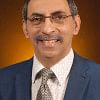
Nawshad Ahmed
Dr Nawshad Ahmed, a retired UN official, is an economist and urban planner.
Dr Nawshad Ahmed, a retired UN official, is an economist and urban planner.
Higher tariffs on Bangladeshi exports will cost more for American consumers, resulting in reduced demand.
Economics, the subject, and its application make it both a science and art.
The Local Government Reform Commission’s recommendation to give zila parishads a stronger planning function makes sense.
The abrupt decision by the Trump administration to freeze almost all USAID operations globally has surprised millions of vulnerable people around the world.
Local government reform must continue, keeping future demand for services in view.
Effective political leadership is essential for achieving democratic governance.
In Bangladesh, challenges hindering the achievement of economic equality are: low public expenditure on education, training, health, rural development and social protection.
Public funds allocation to local bodies is discriminatory.
The implementation of the Annual Development Programme (ADP) in Bangladesh has been severely affected by the impact of the Covid-19 pandemic in the last 17 months.
Income growth leads to increased urbanisation, which due to higher concentration of the population in smaller geographical areas can cause higher rates of infectious diseases.
Whether economic growth has an inherent mechanism to reduce both poverty and inequality has been extensively studied in developed and developing countries.
It is widely acknowled-ged that Bangladesh has been successful in making impressive gains in poverty reduction in the past years. Nevertheless, at the end of 2019, there were still about 16.5 million people categorised as extreme poor.
Dhaka has been going through an unprecedented level of urban growth during the last five decades. As the capital of newly independent Bangladesh in 1971, Dhaka had a population of only 1.5 million, whereas it currently has an estimated population of 21.7 million.
Elections to the paurashava (municipality) councils are ongoing since December 2020 in phases, and are expected to be concluded by April 2021.
It is one thing to explore the connection between religion and development, and another to take it for granted and find out ways in which religion can contribute to economic development, deal with social disorders and promote overall welfare of the people.
When a reasonably large factory is closed down, either by the government or by a private entrepreneur, the immediate consequence of it that comes to mind is the loss of jobs.
I visited more than a dozen small and medium sized towns in Bangladesh during the last two months to get a good understanding about our urbanisation trends.
A common question is how and by whom are prices fixed in the market? The question arises because every now and then the price of one essential consumer item or the other goes up without our notice.